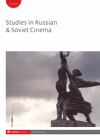
Studies in Russian and Soviet Cinema
metrics 2024
Advancing Scholarly Discourse on Cinematic Histories
Introduction
Studies in Russian and Soviet Cinema, published by Routledge Journals, Taylor & Francis Ltd, provides a critical forum for the exploration and analysis of cinematic practices, histories, and cultures from the Russian and Soviet eras. With its ISSN 1750-3132 and E-ISSN 1750-3140, this journal operates under the editorial guidance of leading scholars in the field, making significant contributions to the Visual Arts and Performing Arts and Communication categories, where it is ranked in the upper quartiles of its peer group. The journal spans a rich period of study, converging insights from 2006 to 2024, thereby allowing for an in-depth understanding of the evolution and impact of cinema in societal narratives. Researchers and enthusiasts alike will appreciate its dedication to illuminating the often-neglected cinematic treasures of Russia and the Soviet Union, promoting scholarly discourse through its rigorous analyses and diverse range of articles. This journal serves as an essential resource for anyone interested in the intersections of film, culture, and history.
Metrics 2024
 0.16
0.16 0.10
0.10 0.20
0.20 7
7Metrics History
Rank 2024
Scopus
JCI (Web Of Science)
Quartile History
Similar Journals

Atalante-Revista de Estudios Cinematograficos
Connecting Scholars to the World of Film and History.Atalante-Revista de Estudios Cinematograficos, an esteemed open-access journal published by ASOC CINEFORUM L ATALANTE, has been a vital platform for scholarly discourse in the fields of Cultural Studies, History, and Visual Arts and Performing Arts since its inception in 2011. With a commitment to promoting innovative research and critical analyses, Atalante has earned a commendable reputation, achieving Q2 status in Cultural Studies and both Q1 rankings in History and Visual Arts for 2023. Based in Valencia, Spain, this journal not only serves as a conduit for scholars to disseminate findings but also provides unrestricted access to its contents since 2013, fostering a more informed and engaged academic community. With its diverse range of topics and the ability to access high-quality research at no cost, Atalante plays a crucial role in advancing the understanding of cinematic studies and its contextual significance in broader cultural narratives.
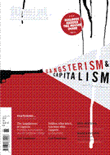
Film International
Celebrating the Intersection of Film, Culture, and Society.Film International is a prominent journal dedicated to the exploration of film and its cultural, social, and artistic significance. Published by INTELLECT LTD, this journal serves as a platform for interdisciplinary studies in the field of film criticism, theory, and scholarship, contributing valuable insights from both established and emerging researchers. With an ISSN of 1651-6826 and an E-ISSN of 2040-3801, the journal is an essential resource for those engaged in the realms of communication, cultural studies, and visual arts, though it is currently classified in the lower quartiles of these fields (Q4). Noteworthy for its critical perspectives and diverse content, Film International enhances the dialogue surrounding cinematic practices and their impact on society. Researchers, professionals, and students can explore its rich assemblage of articles and reviews that reflect the evolving landscape of film studies, making it a significant addition to the academic community focused on the art of film.
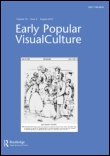
Early Popular Visual Culture
Bridging Disciplines Through Visual StorytellingEarly Popular Visual Culture, published by Routledge Journals, Taylor & Francis Ltd, is a pivotal academic journal dedicated to the interdisciplinary study of visual culture from historical and contemporary perspectives. Since its inception in 2009, this journal has carved out a niche within the academic landscape, achieving a notable Q2 ranking in Visual Arts and Performing Arts and Q3 in both Cultural Studies and History categories as of 2023. With an ISSN of 1746-0654 and E-ISSN of 1746-0662, it serves as a vital platform for scholars to disseminate cutting-edge research and critical analysis on visual phenomena that shape popular culture. The journal not only enhances scholarly discourse but also contributes significantly to the understanding of visual practices across different societies. Researchers, professionals, and students will find this journal invaluable for exploring the intricate interactions between visual culture and social contexts, thereby enriching their academic pursuits and insights.
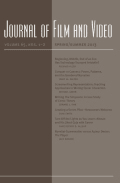
JOURNAL OF FILM AND VIDEO
Innovating Narratives in Film and Video ResearchThe JOURNAL OF FILM AND VIDEO, published by University of Illinois Press, is a pivotal academic platform that delves into the intricate intersections of film, video, and media studies. With a notable ISSN of 0742-4671 and E-ISSN 1934-6018, this journal has established itself as a significant contributor to the visual arts and performing arts field, currently positioned in Q3 of its category as per the 2023 quartiles. Spanning from 2002 to 2024, it presents a comprehensive array of research, critiques, and theoretical discussions that advance scholarly discourse in film and video. The journal encourages contributions that explore innovative narratives and methodologies, catering to a diverse readership of researchers, professionals, and students alike. While it maintains a traditional subscription model and is not open access, its impact is amplified through its Scopus ranking, holding the 323rd position out of 667 in the visual arts and performing arts category. With its commitment to fostering critical conversations and promoting scholarly excellence, the JOURNAL OF FILM AND VIDEO remains an essential resource for those invested in the study and understanding of film and media.

Cinemas
Bridging Academia and Cinematic InnovationCinemas is a leading academic journal dedicated to the exploration and critical analysis of cinematic studies, visual arts, and the dynamic interplay of communication within these fields. Published by Université de Montréal's Program in Bioethics in Canada, this journal serves as a vital platform for researchers, professionals, and students interested in the multifaceted dimensions of cinema and its cultural ramifications. Despite its current positioning in the Q4 quartile of both the Communication and Visual Arts and Performing Arts categories, Cinemas is committed to fostering innovative discourse and scholarship, as evidenced by its inclusion in indexed databases such as Scopus. Covering a range of topics from theoretical frameworks to practical applications within the arts, the journal aims to bridge the gap between academia and the vibrant world of visual storytelling. With a focus on open access, although currently not provided, Cinemas aspires to increase the accessibility of its research to a broader audience, encouraging a rich dialogue that is instrumental to the evolving landscape of cinematic studies.
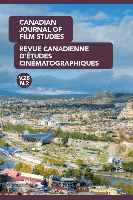
Canadian Journal of Film Studies-Revue Canadienne d Etudes Cinematographiques
Advancing Scholarship in Visual Arts and CinemaCanadian Journal of Film Studies-Revue Canadienne d'Études Cinématographiques is a distinguished publication dedicated to the exploration of film studies within the context of Canadian cinema and global visual arts. Published by University of Toronto Press Inc., this journal offers a platform for innovative and critical scholarship, having achieved a notable Q2 ranking in the Visual Arts and Performing Arts category for 2023, with an impressive Scopus rank of 207 out of 667, positioning it in the 68th percentile among peers. With a continuous publication record since its established years from 1998 to 2001 and 2004 to 2024, it has become an essential resource for researchers, professionals, and students interested in the evolving landscape of film and cinema. The journal not only addresses theoretical perspectives but also engages with contemporary practices, thereby fostering a deeper understanding of cinematic arts. Despite not offering open access, it remains a vital repository of knowledge for those seeking to advance their studies and contribute to the discourse in film studies.
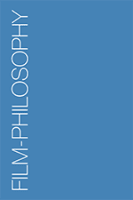
Film-Philosophy
Fostering Multidisciplinary Dialogues in Film and ThoughtFilm-Philosophy is an esteemed academic journal published by Edinburgh University Press, specializing in the intersection of film studies and philosophical discourse. Since its launch in 1998, this Open Access journal has provided a platform for scholarly debates and innovative research, allowing for free and unrestricted access to its content, which has significantly contributed to the global dialogue on visual culture. With a commendable impact illustrated by its Q1 ranking in Visual Arts and Performing Arts and Q2 in Philosophy, the journal sits within the top quartile of its field. Operating from the United Kingdom, Film-Philosophy is committed to fostering a multidisciplinary approach, inviting contributions from researchers, professionals, and students alike. By engaging with critical theories and the aesthetics of cinema, the journal stands as a vital resource for understanding the philosophical implications of film and its cultural significance.
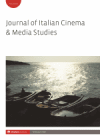
Journal of Italian Cinema and Media Studies
Exploring the Rich Tapestry of Italian Cinema and MediaThe Journal of Italian Cinema and Media Studies, published by INTELLECT LTD, is a premier academic journal dedicated to the exploration and critical analysis of Italian cinema and media. Since its inception in 2013, the journal has contributed significantly to the discourse surrounding the intersections of film, culture, and society, making it a vital resource for researchers and professionals alike. With an impressive span of converged years through 2024 and categorized in various quartiles, such as a Q1 ranking in Visual Arts and Performing Arts, the journal stands out in its field. Although it does not currently offer open access, the rigorous scholarship it publishes is accessible to a wide audience, contributing to ongoing dialogues in communication and cultural studies. The journal's impact is further reflected in its Scopus rankings, positioning it within the 64th percentile in Visual Arts and Performing Arts and the 21st percentile in Communication. As a critical avenue for scholarly exchange and creative inquiry, the Journal of Italian Cinema and Media Studies is essential for anyone engaged in the study of media, culture, and the arts.
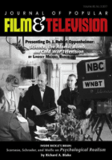
JOURNAL OF POPULAR FILM AND TELEVISION
Unpacking Popular Media's Cultural Significance.JOURNAL OF POPULAR FILM AND TELEVISION, published by Routledge Journals, Taylor & Francis Ltd, stands as a significant platform for academic discourse in the realms of cultural studies, visual arts, and performing arts. With its ISSN: 0195-6051 and an evolving digital presence indicated by its E-ISSN: 1930-6458, the journal has carved out a respected niche since its inception in 1978, continuing to contribute to scholarly discussions through 2024. Its impact within the academic community is underscored by a Q3 ranking in Cultural Studies and a Q2 ranking in Visual Arts and Performing Arts for 2023, highlighting its relevance across diverse fields. Notably, with a Scopus ranking placing it in the 74th percentile among visual arts and performing arts journals, it serves as an essential reference point for researchers, professionals, and students committed to the critical examination of film and television. Although not an open-access journal, it provides valuable insights and analysis that enrich understanding of popular media's impact on society. The journal's location in the United States, with a headquarters in Abingdon, England, further affirms its international scope and influence.

POSITIF
Connecting Researchers and Practitioners in Arts InnovationPOSITIF is a distinguished journal, published by POSITIF EDITIONS, focusing on the dynamic fields of Visual Arts and Performing Arts. With ISSN 0048-4911, this journal has been a significant contributor to the arts community since its establishment in 2002, and it continues to captivate readers with its upcoming issues projected until 2024. Based in the heart of France at 12 RUE PIERRE ET MARIE CURIE, 75005 PARIS, POSITIF serves as an invaluable platform for researchers, professionals, and students alike, promoting innovative discourse and critical analysis within the arts. Despite holding a Q4 category ranking in the 2023 classification and a Scopus rank of 637/667, its commitment to enhancing the understanding and appreciation of visual and performing arts remains steadfast. Researchers are invited to contribute to this growing body of knowledge, enriching the journal's scope and impact in a vibrant artistic landscape.